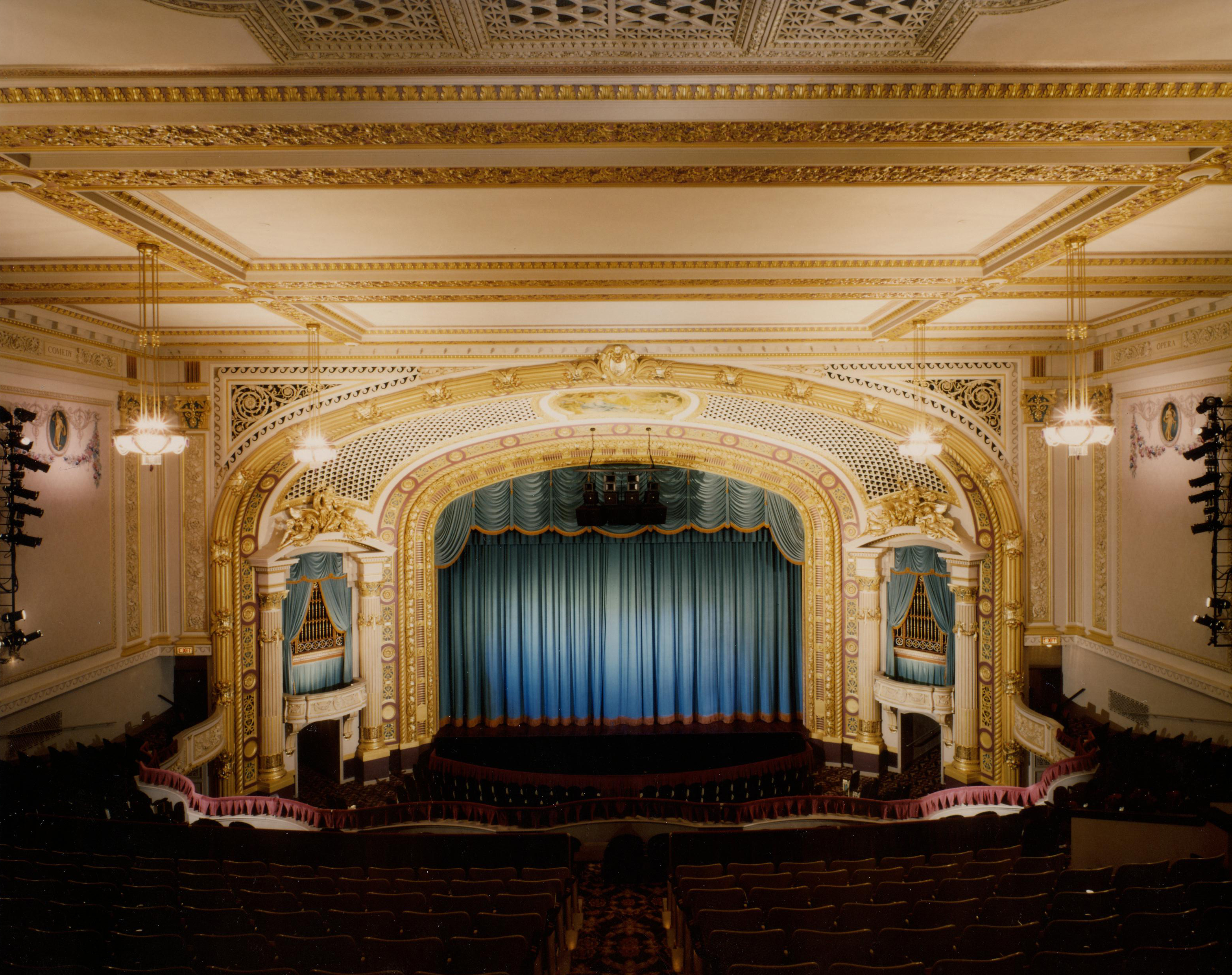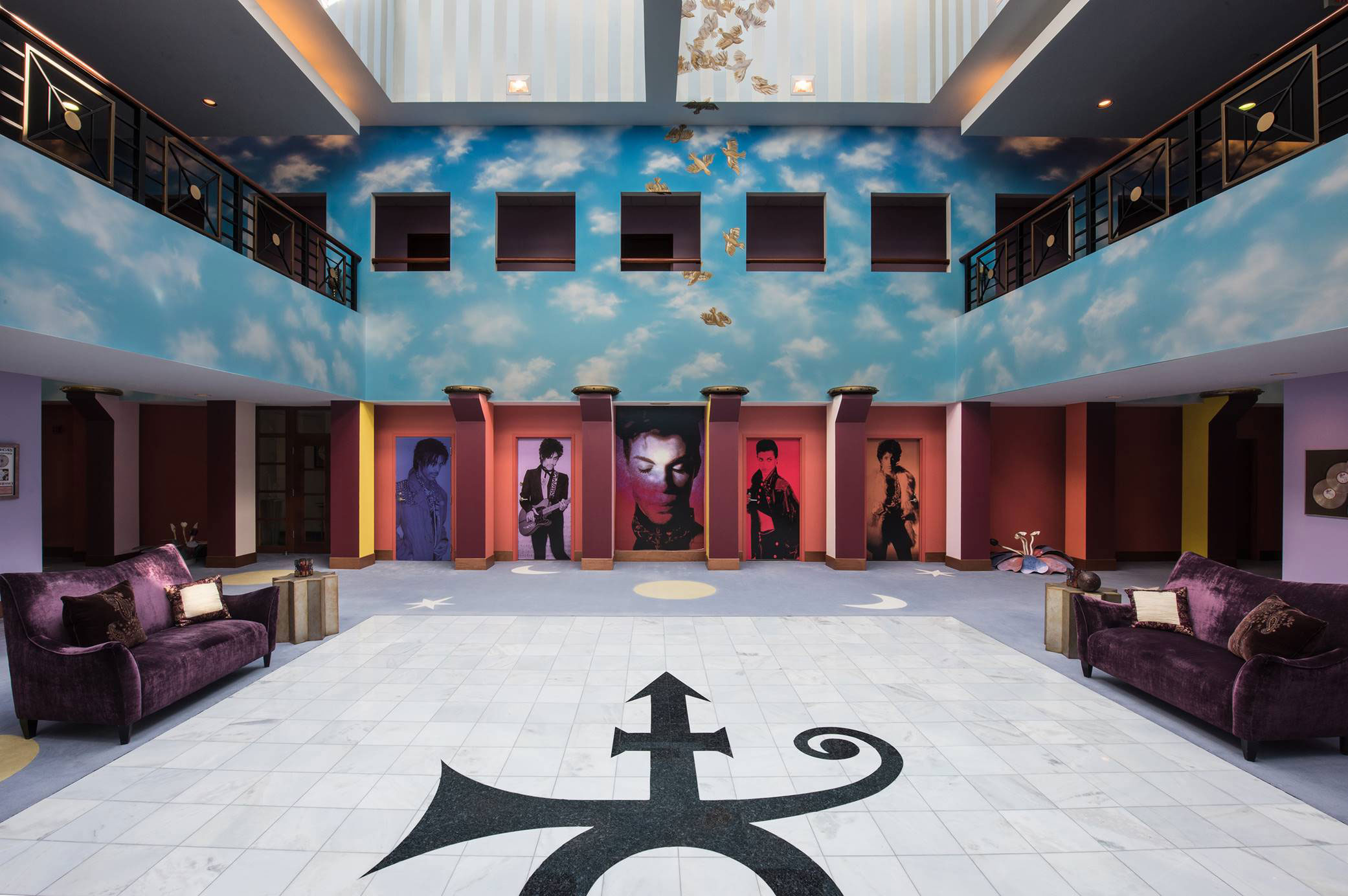
Everything You Need to Know About Minneapolis-St. Paul’s Music Scene
Everything You Need to Know About Minneapolis-St. Paul’s Music Scene
By Keith Harris
From the world-conquering funk of Prince to indie rock icons like the Replacements and Hüsker Dü to newer stars like Dessa and Lizzo, the Twin Cities has consistently turned out sounds that everyone else has wanted to hear. And you don’t get a legacy like that without a vital network of clubs, radio stations, record stores and labels.
Here is how to get a grasp of the metro area’s vibrant music scene....

Stars on the exterior of First Avenue in Minneapolis immortalize artists who have played here / Chad Rieder
LIVE VENUES
For decades now, the center of Minnesota’s music scene has been First Avenue. A renovated bus depot in downtown Minneapolis, First Ave has been rocking for more than 50 years and remains a shining example of what it means to be truly independent. (Longtime CEO Dayna Frank co-founded the National Independent Venue Association during the pandemic, and helped a nationwide network of like-minded promoters secure $16.25 billion dollars in recovery funding as part of its Save Our Stages initiative)
You may have seen First Ave even if you’ve never been to Minneapolis before; it’s where the concert scenes from “Purple Rain” were filmed. A smaller annex, the 7th St Entry, has become nearly as legendary as a launching pad for bands that would go on to play much bigger rooms, like the Replacements, Hüsker Dü, and Soul Asylum.

State Theatre / Meet Minneapolis
But there’s lots more to Minnesota music than First Ave. For seated shows, you can’t beat the historic State and Orpheum theatres, also in downtown Minneapolis. For more intimate shows, swing by the non-profit Hook & Ladder in south Minneapolis, the newly opened Zhora Darling in northeast Minneapolis, or the Cedar Cultural Center in Cedar-Riverside, which focuses on international and folk shows.
Minneapolis also has plenty of jazz options. Try dinner and a show at the Dakota downtown, visit the experimentally focused Icehouse, take a short trip to Crooners Supper Club in Fridley for a night of cabaret-style entertainent, or check out one of the newest additions to Minneapolis nightlife, Berlin, in the trendy North Loop neighborhood.

Sparks perform at the Fitzgerald Theater / Christopher Goyette
And don’t overlook St. Paul’s nightlife either. The cozy Turf Club has long been a favorite local hang. The Palace Theatre, a restored vaudeville theater, has made a name as a large venue for touring bands, and just around the corner sits the homier Fitzgerald Theater, where “Prairie Home Companion” was taped for nearly 40 years.
Turning to classical music, the Minnesota Orchestra , led by music director Thomas Søndergård, not only presents the fare you’d expect from a world class orchestra (with concerts free for kids), but also reaches out to a broader audience with a pops series, performances of film scores, and other special events. The Saint Paul Chamber Orchestra performs both traditional repertoire and newly commissioned works in rooms across the metro area, and the Schubert Club in St. Paul presents special museum exhibits and an eight concert series throughout the year.

Minnesota Orchestra
If you’re here in the summertime, you can catch music outside as well. Minnesota’s festival scene is heating back up in 2024, with the Basilica Block Party and the recently revived summer tradition A Taste of Minnesota returning to downtown Minneapolis. The new Yacht Club Festival is also coming to Harriet Island in St. Paul thanks to major concert promoter C3 Presents (Austin City Limits, Lollapalooza, Bonnaroo).
Minneapolis’ popular Music in the Parks series brings live, local music to parks throughout the city several days a week, while St. Paul offers a great lineup of free music at Lowertown Sounds in Mears Park on Thursday nights.
RECORD STORES
At a time when brick-and-mortar record stores have disappeared from many major cities, the Twin Cities is a haven for vinyl and CD shoppers alike. The granddaddy of Minneapolis record stores is Electric Fetus. Founded in 1968, the Fetus boasts a knowledgeable staff (you might have seen the person who rings up your purchase onstage at the Entry last night), offers regular listening parties for new releases as well as in-store performances, and attracts visiting musicians as well as locals.
Ringo Starr wore an Electric Fetus T shirt onstage at the Grammys in 2010, and Prince, a long-time customer, made some Record Store Day purchases just five days before his death.

A Hozier record signing at Electric Fetus
Old standbys like Cheapo (known for its extensive used CD and LP selection), Know Name, Roadrunner, and Hymie’s (a vinyl haven) are still going strong. Specialty shops like Extreme Noise cater to punk fans, you can actually get your film developed while you browse at the newer coffee shop/record store Disco Death Records, and don’t overlook little gems like the Record Spot in south Minneapolis.
St. Paul has Urban Lights Music, a Black-owned store for over 30 years. And Agharta Records and Barely Brothers also have a great selection and are just blocks away from each other. Our suburbs get in on the action too: Swing by SolSta Records in St. Louis Park, Fly Vintage & Vinyl in Robbinsdale, or Down in the Valley in Golden Valley.

Gothess
CLUB NIGHTS
Minnesota has a rich legacy of dance music, and whether you’re a fan of some specific musical style or just want to shake it to your favorite songs, there’s a club night for you in the Twin Cities.
Ground Zero in northeast Minneapolis keeps the Goth style alive, while The Saloon in downtown Minneapolis is a popular gay bar that’s open to all patrons. Some of the biggest EDM shows pass through the Armory in downtown Minneapolis (which, yes, was once a real armory.) And if you’re in the mood for something a little more retro, there are swing dancing nights throughout the city. Among the most popular is TC Swing in northeast Minneapolis.
Then there are DJ nights that move from club to club. Jake Rudh’s popular “Transmission” night focuses on ’80s new wave and pop, and DJ Shannon Blowtorch spin a variety of styles, both on her own and as part of the GRRRL PRTY collective. Techno promoters Intellephunk has been throwing parties around town since the ’90s, and Gothess’ neon-tinged dance nights have become among the hottest in town.
RECORD LABELS
A hotbed of independent music, the Twin Cities also has a great history of upstart labels who got those sounds out to the people. Historically, you had Twin/Tone Records, which put out the earliest albums by the Replacements, Soul Asylum, and the Jayhawks, and Amphetamine Reptile, which trafficked in heavier sounds.
Continuing that tradition is Rhymesayers Entertainment, the HQ for hometown favorites like Atmosphere and Brother Ali, as well as Doomtree Records, which launched the careers of Dessa and P.O.S. Red House Records in St. Paul, is a top-notch folk label, while Shifting Paradigm puts out some of the best jazz and other improvised music.
Minnesota’s labels are always trying something new, too. Forged Artifacts, has worked with some of the Twin Cities’ best younger bands, focuses on cassette releases, and Dada Duende is new quarterly art zine/record club.
NOTABLE ARTISTS
Bob Dylan, who was born in Duluth, passed through Minneapolis during a crucial period in his musical development in 1959. We hardly even need to mention Prince, but it’s also worth noting his affiliates, such as Morris Day and the Time and the production team of Jimmy Jam & Terry Lewis, whose collaborations with Janet Jackson helped make her a star.
The Replacements, Hüsker Dü, Soul Asylum, and Semisonic gave the Twin Cities a reputation for great indie and alternative rock. More recently, pop star Lizzo launched her music career in Minneapolis with the help of local producers like Ryan Olson (Poliça, Marijuana Deathsquads) and Lazerbeak. Bon Iver’s Justin Vernon, who lives in nearby Eau Claire, often teams up with Minnesotans.
Dua Saleh is one of the Twin Cities' latest success stories, an innovative rapper/singer who recently signed to respected indie label Ghostly International. (You may also know Saleh as Cal on the Netflix show "Sex Education", a role that landed them in LA.)
Among the newer rock bands making noise on a national level are Hippo Campus and Gully Boys. We’ve still got a strong Americana scene, too as evidenced by the brother duo Cactus Blossoms, and a new singer/songwriter, Ber, who had her first headlining tour last year and is definitely a voice to keep an ear on.
RADIO STATIONS
Make sure to turn on the radio while you’re in town, because Minnesota’s airwaves are full of local music and culture. In 2005, Minnesota Public Radio launched The Current (89.3 FM), a station whose programming mixes local artists into an alternative music playlist. The University of Minnesota’s college station, Radio K (770 AM), has a wide, devoted listenership beyond campus, and public radio station Jazz 88 (88.5) supplements its fantastic playlist with insightful interviews with touring musicians.
Our community stations are worth checking out too: The Black community station KMOJ plays rap and gospel and everything in between, as well as serving as a forum on important topics, while the freeform station KFAI (90.3) offers up everything from metal to folk to Somali language programming.

Step into the Prince-themed atrium on a tour of Paisley Park / Paisley Park and NPG Records
KEEP EXPLORING
There’s more to Minnesota than the Twin Cities, and there’s more to Minnesota music than what’s mentioned above. To start with, there’s Paisley Park in nearby Chanhassen, where Prince once lived and recorded, and which is now a museum.
Each summer, two big country music festivals roll into Greater Minnesota — Winstock Country Music Festival and WE Fest. Just a couple hours to the north, Duluth has a thriving music scene that has produced the indie band Low and the bluegrass outfit Trampled by Turtles. That city celebrates its scene with the Homegrown Music Festival every spring and the Bayfront Blues Festival each summer.
Minnesota casinos like Treasure Island and Mystic Lake offer great live music as well. In addition to country stars and nostalgia acts, the casinos have brought in Wilco, Kesha, and Lauryn Hill in recent years.


